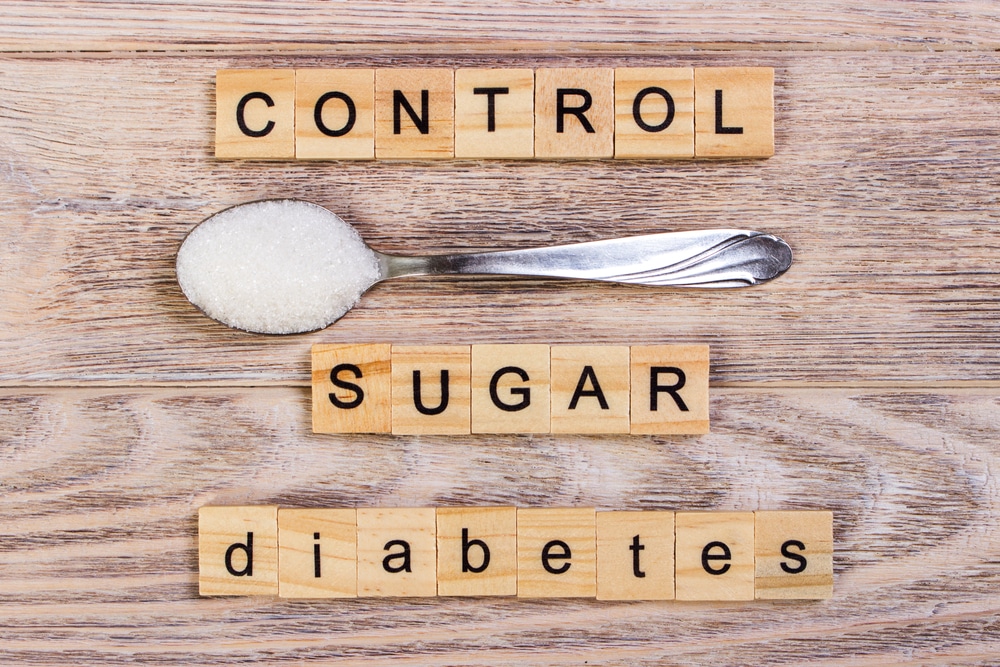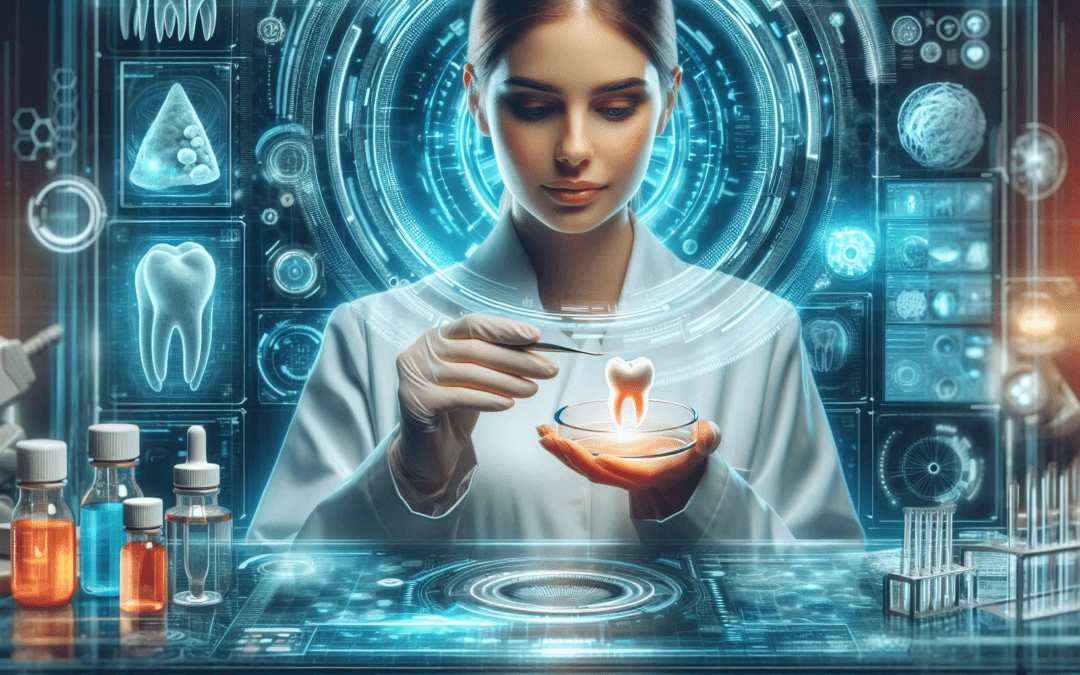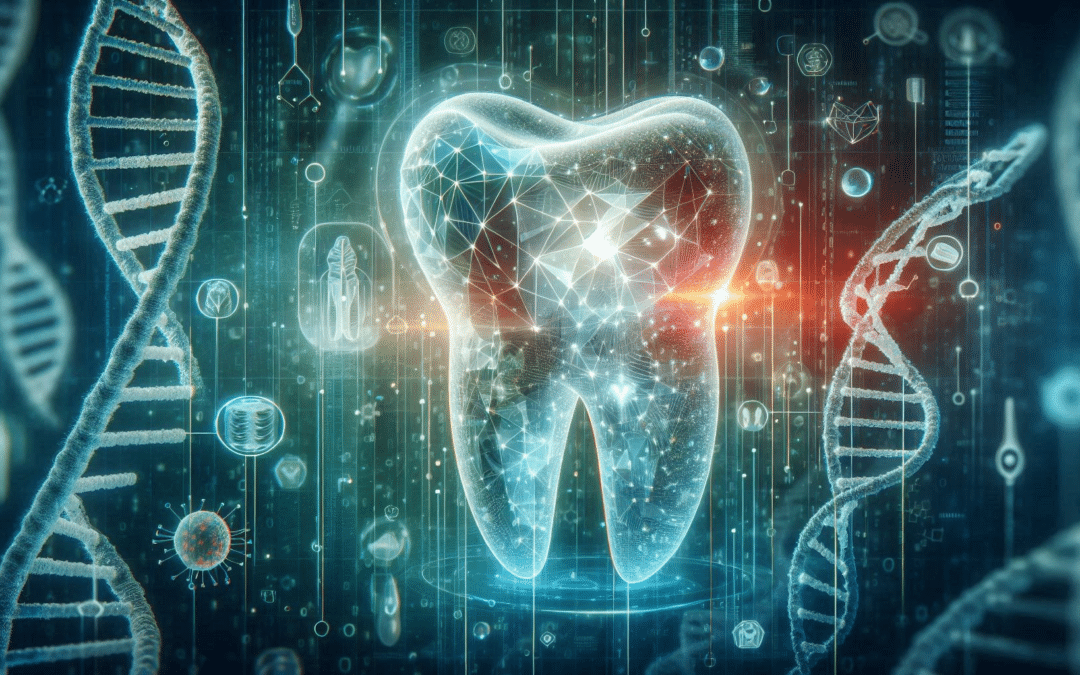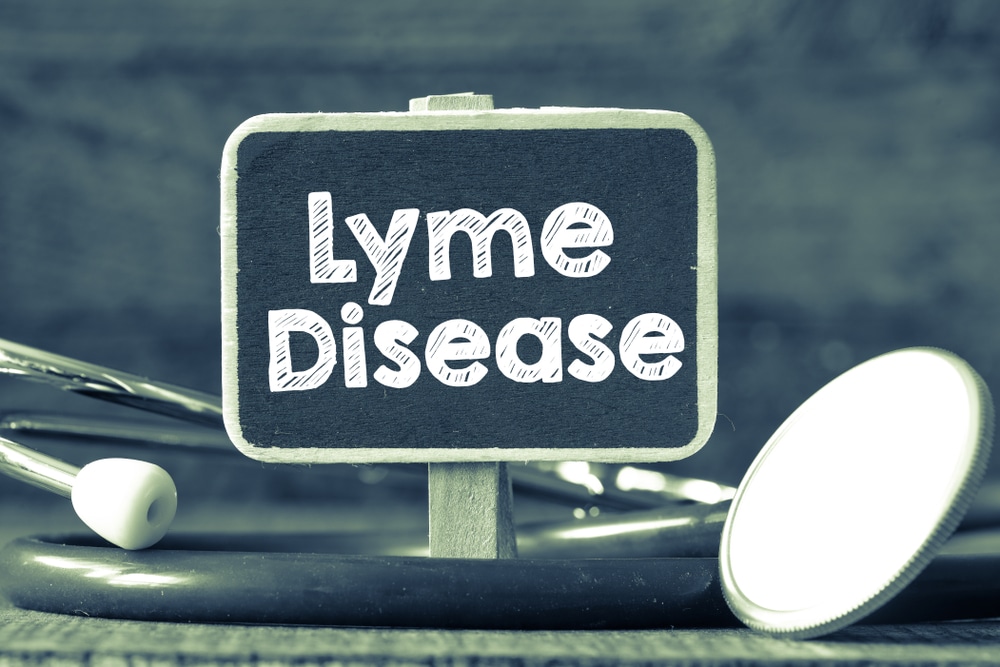
by Dr. Richard J. Walicki | Aug 1, 2024 | Dentistry
Taking care of your oral health might seem unnecessary when you aren’t experiencing any pain or discomfort, but the truth is, many dental conditions are painless in their early stages. This contrast often leads patients to believe that their teeth and gums are perfectly fine, even when underlying issues may be developing.
The Silent Nature of Dental Problems
Most dental issues, like tooth decay and gum disease, begin without any noticeable symptoms. Tooth enamel, which is the hard, outer surface of your teeth, is predominantly mineral and the primary site where decay starts. Because enamel lacks nerves, it won’t hurt in the early stages of decay. By the time you feel pain, the decay has usually progressed to deeper layers of the tooth, often requiring more extensive and expensive treatments.
Similarly, bone loss, the leading cause of tooth loss, progresses quietly. You won’t feel bone loss happening, but it significantly impacts your dental health. Once bone is lost, it is almost impossible to regenerate it with the current state of dentistry. While some procedures like LANAP (Laser-Assisted New Attachment Procedure) offer promise for specific conditions, they can’t reverse horizontal bone loss.
Why Preventive Care is Key
Given the silent nature of these problems, it’s crucial to prioritize preventive care. Here’s why brushing after meals, flossing daily, and eating tooth-friendly foods are vital:
- Prevents Tooth Decay: Regular brushing and flossing remove plaque, the sticky film of bacteria that forms on your teeth. Plaque is the primary cause of tooth decay. By keeping your teeth clean, you can prevent decay from starting in the first place.
- Maintains Healthy Gums: Daily flossing removes plaque and food particles from between your teeth and under the gumline, areas your toothbrush can’t reach. This helps prevent gum disease, which can lead to bone loss and tooth loss if untreated.
- Strengthens Enamel: Consuming foods rich in calcium and phosphates can help remineralize your enamel, making it more resistant to decay. Drinking plenty of water and avoiding sugary snacks also support oral health.
Finding the Right Dentist for You
We recommend these practices not to scare you into the dental chair but because we care about your overall well-being. It’s important to find a good dentist who you feel comfortable with and who prioritizes preventive care. Regular dental check-ups are an essential part of maintaining oral health. During these visits, a dentist can catch and address issues before they become serious, helping you maintain a healthy, beautiful smile for life.
The Long-Term Benefits of Oral Health
Remember, a healthy mouth is a crucial part of a healthy body. Good oral hygiene habits can prevent a host of problems, from tooth decay to gum disease, and can even impact your overall health, reducing the risk of conditions like heart disease and diabetes.
By taking care of your oral health now, you’ll enjoy the benefits for years to come. Don’t wait for the pain to start—act today for a healthier tomorrow. Whether it’s brushing and flossing daily, eating a balanced diet, or scheduling regular dental check-ups, these simple steps can make a big difference in your oral and overall health.
Take Charge of Your Oral Health Today
Invest in your smile and overall health by adopting good oral hygiene practices now. Finding a dentist you trust can make a significant difference in maintaining your oral health and catching potential issues early. Remember, preventive care is the best care.

by Dr. Richard J. Walicki | Jul 30, 2024 | Dentistry
Understanding Tooth Decay
Tooth decay, also known as dental caries or cavities, is a common oral health issue caused by the breakdown of tooth enamel. This process occurs when bacteria in the mouth produce acids that erode the enamel. The primary culprit behind this bacterial activity is sugar. When we consume sugary foods and beverages, the bacteria feed on the sugars, producing acid as a byproduct. Over time, these acids can create holes in the enamel, leading to cavities.
Blood Sugar and Its Role in Tooth Decay
Blood sugar, or glucose, is the main sugar found in the blood and the primary source of energy for our body’s cells. However, elevated blood sugar levels can have detrimental effects on oral health, particularly in the development of tooth decay.
- Increased Sugar Availability: Higher blood sugar levels mean more glucose is available in the saliva. This can increase the food supply for harmful bacteria in the mouth, leading to more acid production and a higher risk of cavities.
- Dry Mouth: Individuals with high blood sugar levels, especially those with diabetes, often experience dry mouth (xerostomia). Saliva plays a crucial role in neutralizing acids and washing away food particles. Reduced saliva flow means less natural protection against tooth decay.
- Impaired Immune Response: High blood sugar can weaken the immune system, making it harder for the body to fight off infections, including those in the mouth. This can exacerbate tooth decay and gum disease.
Diabetics and Oral Health: Bone Loss and Tooth Decay
Diabetes is a chronic condition characterized by high blood sugar levels. It can lead to a range of complications, including significant oral health issues.
- Bone Loss: People with diabetes are at an increased risk of periodontal (gum) disease, which is a major cause of bone loss around the teeth. The chronic inflammation associated with gum disease can destroy the bone that supports the teeth, leading to tooth loss. High blood sugar levels can exacerbate this inflammation, accelerating the progression of periodontal disease.
- Higher Incidence of Tooth Decay: Diabetics often experience a higher incidence of tooth decay due to several factors:
- Reduced Saliva Production: As mentioned earlier, dry mouth is common in diabetics, reducing the protective effects of saliva.
- Higher Glucose Levels in Saliva: Elevated blood sugar levels can translate to higher glucose levels in saliva, providing more fuel for acid-producing bacteria.
- Delayed Healing: Diabetes can impair the body’s ability to heal, making it harder to recover from oral infections and injuries. This can lead to prolonged periods where the mouth is vulnerable to decay and other issues.
Preventive Measures for Diabetics
Maintaining good oral health is crucial, especially for individuals with diabetes. Here are some tips to help prevent tooth decay and bone loss:
- Regular Dental Checkups: Regular visits to the dentist can help catch and address problems early.
- Good Oral Hygiene: Brushing twice a day with fluoride toothpaste and flossing daily can help keep teeth and gums healthy.
- Manage Blood Sugar Levels: Keeping blood sugar levels within the target range can reduce the risk of oral health complications.
- Stay Hydrated: Drinking plenty of water can help combat dry mouth and keep saliva flowing.
- Healthy Diet: A balanced diet low in sugary foods and drinks can reduce the risk of tooth decay.
Supporting Healthy Blood Sugar Levels with Berberine Breakthrough
For those looking to support healthy blood sugar levels and overall well-being, consider Berberine Breakthrough by BIOptimizers. This product offers a range of benefits that can be especially helpful for individuals managing blood sugar concerns:
- Increases blood sugar uptake into muscles rather than fat cells
- Improves exercise performance and muscle gain
- Supports healthy blood sugar control and insulin response
- Improves carbohydrate metabolism
- Enhances energy levels and overall well-being
- Neutralizes oxidative damage from high blood glucose
- Supports weight loss efforts in combination with diet and exercise
- Balances hormones and stress response from blood sugar fluctuations
- Normalizes mood swings, energy swings, brain fog, and cravings due to blood sugar fluctuations
- Increases mitochondrial uncoupling, which burns more calories as heat
- Promotes healthy carbohydrate digestion and absorption in the gut
- Promotes a balanced inflammatory response
To learn more and purchase Berberine Breakthrough, visit bit.ly/BIOptimizers. Use code SAVE10 at checkout to get a 10% discount on your purchase.
Understanding the relationship between blood sugar and oral health is essential for preventing tooth decay and other complications. By managing blood sugar levels and maintaining good oral hygiene, individuals with diabetes can protect their teeth and gums, ensuring a healthier smile. And for those looking for additional support, Berberine Breakthrough offers an effective solution to help manage blood sugar and improve overall health.

by Dr. Richard J. Walicki | Jul 30, 2024 | Dentistry
The field of dentistry is evolving rapidly, with revolutionary technologies transforming what’s possible in dental care. Following our exploration of tooth regeneration from stem cells, we’re excited to delve deeper into the future of dental health. This article highlights not only the potential for regrowing teeth but also the modern alternatives that are reshaping dental practices today.
Advanced Dental Implants
While the possibility of regrowing teeth from stem cells is still on the horizon, advanced dental implants are here today, offering a robust and reliable solution for tooth loss. Modern implants have come a long way in both material and design sophistication, designed to integrate seamlessly with your jawbone, mimicking the look, feel, and function of natural teeth.
Titanium vs. Zirconia Implants
Traditionally, titanium has been the material of choice for dental implants due to its strength, durability, and excellent biocompatibility, allowing for effective osseointegration with the jawbone. However, recent advancements have seen the rise of zirconia implants, which are favored for their aesthetic qualities—they do not show a metallic line at the gum as titanium can. Despite their advantages, zirconia implants have not caught on as quickly as titanium in the U.S. primarily due to their relative novelty and the lack of long-term studies proving their superiority over the well-established titanium options.
Bioengineered Materials
Bioengineered materials are revolutionizing dental restorations by providing solutions that are not only durable but also biocompatible. These materials are designed to integrate with the body’s natural tissues, promoting better healing and a more natural response within the mouth.
Examples of Bioengineered Materials
- Composite Resins: Improved to better mimic the natural appearance of teeth while providing durability.
- Ceramic Compounds: Including advanced porcelains and ceramics used in crowns and veneers, which offer excellent color matching and resistance to wear.
- Zirconia: Mentioned earlier, it’s also part of the bioengineered category for its aesthetic and hypoallergenic properties, making it ideal for patients with metal sensitivities.
Key Differences in Implant Designs:
Titanium Implants
- Two-piece system: Most titanium implants feature a separate abutment that screws onto the implant. This design allows for a high degree of customization in terms of the abutment’s shape, angle, and the type of crown that can be attached. It also facilitates easier adjustments or replacements of the crown without disturbing the implant.
- Versatility: The separate abutment provides more options for dealing with various anatomical challenges, such as angled implants in areas with limited space or uneven bone levels.
Zirconia Implants
- One-piece design: Many zirconia implants are designed as a single unit, where the implant and the abutment are integrated. This can simplify the surgical procedure and reduce the risk of bacterial build-up between the abutment and the implant that might occur in two-piece designs. However, it limits the adjustability of the implant’s protrusion and angle once placed.
- Aesthetic and biocompatibility: Zirconia is chosen for its aesthetic qualities and biocompatibility, making it a favorable option especially in the visible areas of the mouth. However, the one-piece design can be a limitation in terms of prosthetic flexibility and customization.
Clinical Implications:
The one-piece nature of many ceramic implants means that once they are placed, the options for adjusting the position or angle of the abutment are limited, potentially making the final placement of the crown more challenging. This can be particularly problematic in cases where precise alignment and fit are crucial for aesthetic or functional reasons. Additionally, if the crown or the implant needs repair or replacement, the entire unit might need to be addressed, which can complicate and increase the cost of maintenance.
While ceramic implants offer excellent aesthetic and biocompatible properties, their one-piece design can pose challenges for dental restoration, particularly when compared to the versatility offered by the two-piece titanium systems. It’s important for patients and clinicians to consider these factors when choosing the most suitable implant material and design for their specific needs.
Cutting-edge Dental Technologies
The future of dental health is also being shaped by cutting-edge technologies that make treatments more efficient and less invasive. Here’s how digital dentistry is playing a crucial role:
Digital Dentistry and the Patient Experience
Digital dentistry, including 3D imaging and computer-aided design/computer-aided manufacturing (CAD/CAM), allows for precise diagnostics and personalized treatment planning. This technology not only improves the accuracy of treatments but also significantly enhances the patient experience by reducing the time spent in the dental chair and increasing comfort. Digital impressions for crowns or aligners are faster, more comfortable, and more accurate than traditional methods, leading to better fitting and more effective dental appliances.
As we continue to explore and develop these advanced technologies, the future of dental health looks brighter than ever. While we await the day when teeth regeneration becomes a commonplace procedure, these modern alternatives provide effective and innovative solutions for today’s dental challenges. By staying informed about these advancements, you can make the best choices for your dental health and keep your smile bright and healthy for years to come.
Stay ahead of the curve by visiting our blog regularly for updates on the latest innovations in dental care. Your smile deserves nothing less than the cutting edge!

by Dr. Richard J. Walicki | Jul 30, 2024 | Dentistry
Have you ever imagined being able to grow a new tooth? Thanks to ongoing research in stem cell technology, that day might eventually come, but it’s important to temper excitement with a dose of reality. Let’s dive into the fascinating world of dental stem cell research and understand what it really takes to regrow teeth, why it’s not ready for dental offices just yet, and why you shouldn’t delay your current dental treatments.
The Potential of Growing New Teeth
Stem cell research is a hot topic in medicine, and it has the potential to change the way we treat many health issues, including lost or damaged teeth. Researchers are focusing on how to use stem cells—those incredible cells that can turn into many different types of cells—to regenerate teeth. This could mean growing a tooth from scratch and having it perfectly fit and function within your mouth.
The Big Challenges Ahead
While the idea is thrilling, several big hurdles stand in the way:
Merging a New Tooth with the Jawbone
One of the trickiest parts is making sure a new tooth can actually attach to the jawbone properly. It’s not just about growing a tooth; it’s about ensuring it can handle the everyday stress of chewing and last a lifetime.
It Takes Time
Growing a new tooth isn’t something that happens overnight, or even over a few weeks. We’re talking about a process that can take years from start to finish. It involves multiple complex steps: getting the cells, making them grow the right way, and then making sure they survive once implanted.
Custom Fit Needs
Every mouth is unique, and so is every tooth in it. A regenerated tooth needs to match perfectly in size, shape, and color with your other teeth. This customization is a significant challenge for scientists.
Keeping Expectations Real
Many people hear about these advances and think they might be able to get a new tooth grown in the near future. However, the truth is that this technology isn’t ready for your dentist’s office yet and won’t be for quite some time. It’s crucial to understand that current dental treatments are reliable and necessary for your oral health.
Why You Shouldn’t Wait
Putting off needed dental treatments in hopes of benefiting from this new technology could lead to more significant problems. Decay, infection, and even further tooth loss can occur if existing dental issues aren’t addressed promptly.
The Future Is Bright, But Today Matters More
The research into tooth regeneration is incredibly exciting and could one day transform dental care. However, for now, it’s important to take care of your dental health with the tools and treatments currently available. This ensures that your smile remains healthy and bright today, while science marches on towards the innovations of tomorrow.

by Dr. Richard J. Walicki | Jul 30, 2024 | Dentistry
Are you ready to transform your smile and boost your confidence? Cosmetic dentistry isn’t just about aesthetics; it’s a gateway to enhanced dental health and a radiant smile that can truly change how you feel about yourself. In this blog post, we’ll dive deep into the world of cosmetic dentistry, exploring various procedures that can help you achieve the smile you’ve always dreamed of.
Understanding Cosmetic Dentistry
Cosmetic dentistry includes various procedures designed to improve the appearance of your teeth and smile. Whether it’s correcting imperfections, restoring damaged teeth, or making your smile brighter, cosmetic dentistry has something to offer everyone.
Types and Benefits of Cosmetic Dentistry
Let’s explore some of the most popular cosmetic dental procedures and their benefits:
Teeth Whitening
One of the quickest and most cost-effective ways to enhance your smile is through professional teeth whitening. It can remove years of stains caused by foods, drinks, or smoking, leading to a brighter and more youthful appearance.
Dental Veneers
Veneers are thin, custom-made shells designed to cover the front surface of teeth. They are excellent for correcting chips, cracks, gaps, or misshapen teeth. Veneers not only improve the aesthetic of your teeth but also provide a durable solution that can last many years with proper care.
Dental Implants
For those missing one or more teeth, dental implants offer a durable and functional solution. They provide a foundation for replacement teeth that look, feel, and function like natural teeth. Implants can also help preserve facial structure, preventing bone deterioration that occurs when teeth are missing.
Orthodontics
Modern orthodontics offers more than just traditional braces. Options like clear aligners can straighten teeth discreetly and effectively, improving oral health and functionality along with appearance.
Personal Stories of Transformation
Check out our YouTube channel to hear from some of our patients who have experienced life-changing results through cosmetic dentistry. From improved self-esteem to enhanced comfort and function, these personal stories highlight the profound impact that cosmetic dental work can have on one’s quality of life.
Preventive Measures to Maintain a Healthy Smile
While cosmetic procedures can dramatically improve your smile, maintaining these results requires good oral hygiene and regular dental visits. Here are some tips to keep your smile shining after cosmetic dentistry:
- Regular Dental Check-Ups: Visit your dentist regularly for cleanings and exams to keep your new smile in top condition.
- Proper Oral Hygiene: Brush twice a day, floss daily, and consider using an antimicrobial mouthwash to reduce bacteria buildup.
- Wear Protection: If you have veneers or implants, wear a mouthguard during sports and a night guard if you grind your teeth to protect your investments.
Conclusion
Whether you’re considering a minor adjustment or a complete smile overhaul, cosmetic dentistry can offer a path to a stunning smile and boosted self-confidence. With today’s advances, you have multiple options at your disposal to create a healthier, more attractive smile.
🦷✨ Smile Brighter Today! ✨🦷
Start your journey to a stunning smile by contacting us or visiting our website to learn more about cosmetic dentistry services. Go ahead and create that radiant smile you deserve!

by Dr. Richard J. Walicki | Jul 30, 2024 | Dentistry
Today, we’re delving into a topic that’s a bit off the beaten path but crucially important—how ticks, typically a concern for hikers and pet owners, can also impact your oral health. That’s right, those tiny creatures can influence more than just your skin; they can leave a lasting impression on your smile too! 🌲🔍
While most of us are aware that a tick bite can lead to Lyme disease, characterized by its notorious rash, few know about the oral symptoms that can accompany this condition. Here’s what you should watch out for:
Dry Mouth and Tooth Pain
One of the lesser-known symptoms of Lyme disease is dry mouth. When Lyme disease affects the nerves that help in salivary gland functioning, it can lead to a significant decrease in saliva production, causing dry mouth. This condition is not only uncomfortable but can also increase the risk of tooth decay and gum disease.
Tooth pain is another surprising symptom. It’s not your typical ache either; Lyme disease can cause a deep, pulsating discomfort that might make you think you need a filling or root canal.
Jaw Pain: It’s Not Always About Your Wisdom Teeth
Experiencing jaw pain? While wisdom teeth could be the culprit, Lyme disease could also be stirring trouble. This condition can cause inflammation in the muscles and joints of the jaw, leading to a condition known as Lyme arthritis. This can make opening your mouth, chewing, or even speaking a painful ordeal.
Understanding the Lyme Links to Oral Health
Lyme disease bacteria can invade various tissues in your body, including those in your oral cavity. Here’s how you can recognize the link:
- Gum inflammation: Look out for redder, more swollen gums than usual, which could be a sign of Lyme-related inflammation.
- Facial nerve palsy: In some cases, Lyme disease can cause facial nerve palsy, which might lead to drooping on one side of your face, affecting your smile and facial expressions.
How to Protect Your Smile from Tick Bites
Here are some tips to help you keep your smile safe while enjoying the great outdoors:
- Use tick repellents: When hiking or walking in wooded areas, use EPA-registered tick repellents on your skin and clothing.
- Perform tick checks: After spending time outdoors, make sure to check your entire body for ticks, paying close attention to the neck and behind the ears.
- Maintain good oral hygiene: Regular brushing and flossing can help mitigate the effects of dry mouth and keep your gums healthy.
Ticks might be small, but their impact on your health, including your oral health, can be significant. By staying vigilant and informed about the symptoms and connections between Lyme disease and dental issues, you can better protect yourself and keep those pearly whites shining bright—both in the sun and away from ticks!
Stay safe, and keep smiling bright! 😁🌿🦟

by Dr. Richard J. Walicki | Jul 30, 2024 | Dentistry
Leptin resistance is a term you might not have heard before, but it plays a crucial role in your overall health, including your oral health. This condition can have far-reaching effects, impacting everything from weight management to inflammation. But did you know it could also affect your gums and teeth? In this post, we’ll explore how leptin resistance links to oral health and what you can do to mitigate its effects.
What is Leptin Resistance?
Leptin is a hormone produced by fat cells that helps regulate hunger and energy expenditure. When your brain becomes resistant to leptin, it can no longer effectively receive signals, leading to increased hunger, inflammation, and other health issues. Elevated leptin levels are often associated with obesity, insulin resistance, and chronic inflammation.
Leptin Resistance and Gum Disease
One of the most significant impacts of leptin resistance on oral health is its potential to exacerbate gum disease (periodontitis). Leptin’s role as a pro-inflammatory cytokine means that elevated levels can contribute to chronic inflammation in the body, including the gums. This inflammation can lead to:
- Gum Swelling and Bleeding: Chronic inflammation can cause gums to become swollen and bleed easily, making them more susceptible to infection.
- Receding Gums: Persistent inflammation can result in gum recession, leading to exposure of the tooth roots and potential tooth sensitivity.
- Bone Loss: Advanced gum disease can result in the loss of bone around the teeth, potentially leading to tooth mobility and loss.
Diet, Leptin Resistance, and Oral Health
The diet plays a significant role in both leptin resistance and oral health. Diets high in sugars and saturated fats not only contribute to leptin resistance but also increase the risk of tooth decay and gum disease. For instance:
- Sugar: High sugar intake can lead to plaque buildup on teeth, which harbors bacteria and contributes to tooth decay and gum disease.
- Saturated Fats: Diets high in saturated fats can promote systemic inflammation, further exacerbating gum problems.
The Connection Between Leptin Resistance, Insulin Resistance, and Diabetes
Leptin resistance is often associated with insulin resistance, which can progress to type 2 diabetes. Diabetes is well-known for its impact on oral health, including:
- Increased Risk of Gum Disease: High blood sugar levels can impair the immune response, making it harder to fight off infections like gum disease.
- Delayed Healing: People with diabetes often experience slower healing of oral tissues, increasing the risk of complications following dental procedures.
How to Manage Leptin Resistance for Better Oral Health
Managing leptin resistance effectively can lead to improvements in both your overall health and your oral health. Here are some strategies to consider:
- Improve Your Diet: Focus on a balanced diet rich in fruits, vegetables, whole grains, and lean proteins. Reducing your intake of processed foods, sugars, and unhealthy fats can help manage leptin levels and improve oral health.
- Exercise Regularly: Physical activity can help reduce inflammation and support healthy leptin function. Aim for at least 150 minutes of moderate exercise per week.
- Prioritize Sleep: Quality sleep is essential for regulating leptin and overall health. Aim for 7-9 hours of restful sleep each night.
- Reduce Stress: Chronic stress can exacerbate inflammation and leptin resistance. Practice stress-management techniques such as mindfulness, meditation, or yoga.
Leptin resistance is more than just a metabolic issue; it has significant implications for your oral health. By understanding the connection between leptin resistance and gum disease, and by taking steps to manage it through diet, exercise, and lifestyle changes, you can improve both your overall well-being and your dental health. For personalized advice and support, consult with your healthcare provider or dentist.
Looking for supplements that can help? Check out these products from BIOptimizers:
KaPex: supports a smooth transition into ketosis and reduces potential side effects of keto-adaptation.
Blood Sugar Breakthrough: which is is the most comprehensive blood sugar supplement on the market because it addresses all cellular aspects of blood sugar control.
Paraguardian:
- A precise blend of 13 synergistic herbs anti-parasitic, anti-fungal, and anti-bacterial activities
- 5 digestive enzymes to support digestion and biofilm breakdown[1]
- Kill the parasites, fungi, and bad bacteria to make room for good gut microbes
- Slippery elm and turmeric help soothe the gut lining and promote a balanced inflammatory response










